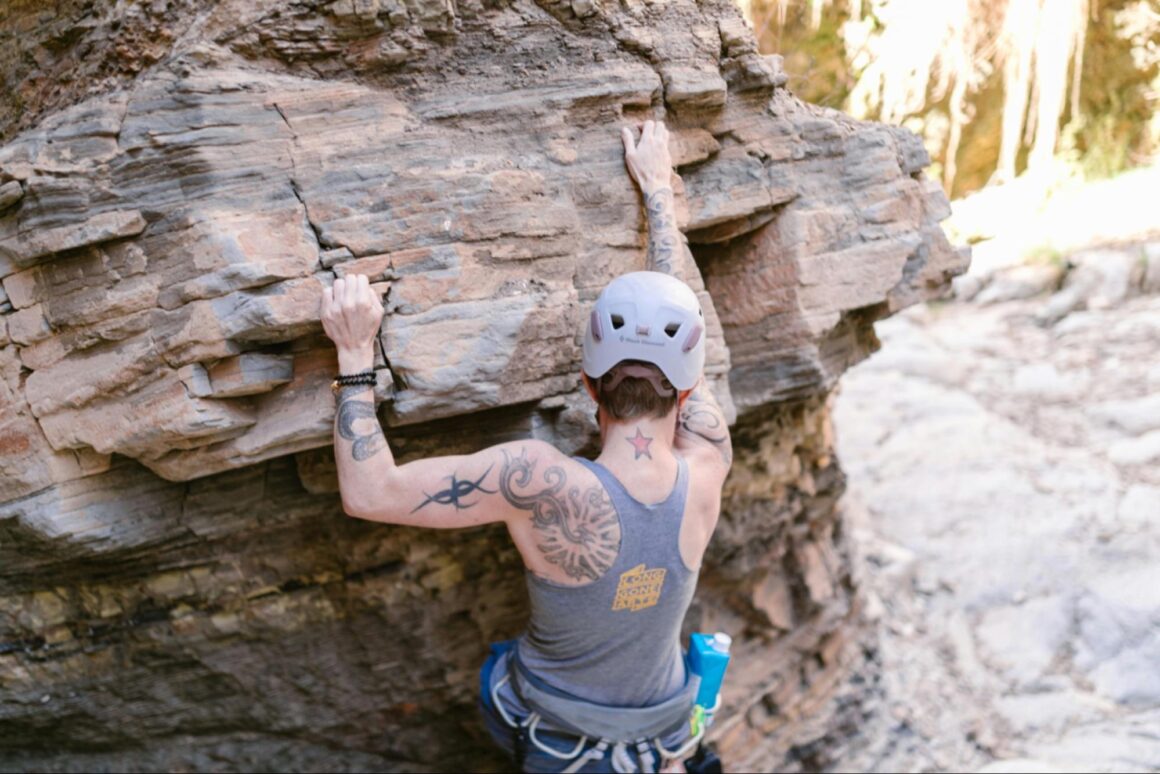Participating in sports such as running, cycling, golf, swimming, or any other more demanding outdoor activities boosts cardiovascular fitness. Right, that’s about your heart.
These activities increase your heart rate, improve blood circulation, and strengthen the heart muscle, which reduces the risk of heart disease and stroke.
And there’s more to it than just physical benefits. Let’s dig a little into a few outdoor routines that are deemed best for the heart and soul:
Golf
Golf is a sport that combines physical activity with mental strategy, providing numerous health benefits.
Physical Fitness
Walking the course, carrying clubs, and swinging the golf club work various muscle groups and improve cardiovascular health.
An average round of golf can involve walking several miles, which helps with weight management and overall fitness. Yes, golfing is a calorie burner activity.

Not everyone knows that swinging the golf club also engages muscles in the upper body, including the shoulders, arms, and core, promoting muscle tone and flexibility.
Mental Stimulation
Golf requires concentration, strategic thinking, and patience. These mental demands help improve cognitive function and reduce the risk of mental decline.
The strategic aspect of planning shots, calculating distances, and selecting the right club enhances problem-solving skills and mental acuity.
The tranquil setting of a golf course also provides a meditative environment, further reducing stress and promoting mental clarity.
Social Interaction
Golf is often played in groups, providing opportunities for social interaction and building relationships.
This social aspect can enhance mental well-being and reduce feelings of isolation. Playing golf with friends or joining a golf club fosters a sense of community and belonging, which is beneficial for emotional health.
The social nature of the game encourages communication, teamwork, and the development of lasting friendships.
Cycling
Cycling is a versatile activity that can be enjoyed solo or in groups, offering a range of health benefits.
Cardiovascular Health
Cycling is an excellent cardiovascular workout that strengthens the heart, improves blood circulation, and reduces the risk of heart disease.

Regular cycling increases aerobic capacity and boosts overall stamina, making daily activities easier to perform. The rhythmic motion of pedaling helps maintain a steady heart rate, which is crucial for cardiovascular health.
Muscle Strength and Endurance
Cycling targets various muscle groups, particularly the legs, and enhances muscle strength and endurance. It also improves joint mobility and overall flexibility.
The repetitive motion of cycling builds muscle strength in the quadriceps, hamstrings, calves, and glutes.
Cycling also engages the core and lower back muscles, promoting better posture and balance.
Mental Health
Cycling outdoors provides exposure to nature, which can reduce stress and improve mood. The physical exertion also releases endorphins, promoting a sense of well-being.
Cycling can be a form of active meditation, allowing individuals to clear their minds and focus on the present moment.
The sense of freedom and exploration that comes with cycling can enhance mental health and emotional resilience.
Hiking
Hiking is a popular outdoor activity that combines physical exercise with the beauty of nature.
Physical Fitness
Hiking is a full-body workout that improves cardiovascular health, strengthens muscles, and enhances balance and coordination. The varying terrain and elevation changes add an extra challenge, boosting overall fitness.

Hiking on uneven surfaces engages stabilizing muscles and improves proprioception, which is the body’s ability to sense its position and movement.
Mental Well-Being
Spending time in nature has a calming effect and can reduce stress and anxiety. Hiking also provides an opportunity for mindfulness and mental relaxation.
The natural environment stimulates the senses and encourages a mindful awareness of the surroundings.
This mindful approach can reduce symptoms of depression and anxiety, promoting overall mental well-being.
Social Benefits
Hiking with friends or joining hiking groups can enhance social connections and provide a sense of community. Shared experiences in nature can strengthen relationships and improve mental health.
Group hikes offer opportunities for bonding and teamwork as hikers navigate trails and overcome challenges together.
The social interaction during hikes can create lasting memories and friendships.
Trekking
Trekking involves longer, more strenuous hikes, often over multiple days, and offers significant health benefits.
Endurance and Strength
Trekking builds endurance, strength, and stamina. The physical demands of carrying a backpack and navigating challenging terrain improve overall fitness and resilience.
Trekking uphill and downhill engages different muscle groups, enhancing leg strength and cardiovascular endurance.

The continuous physical effort required during treks increases stamina and overall physical endurance.
Mental Toughness
The mental challenges of trekking, such as navigating unfamiliar routes and coping with physical fatigue, build mental toughness and resilience. Overcoming these challenges can boost confidence and self-esteem.
The sense of accomplishment after completing a challenging trek can enhance self-worth and mental fortitude.
The ability to adapt to changing conditions and environments during a trek also fosters mental agility and problem-solving skills.
Connection with Nature
Extended time in nature during treks promotes mental clarity and emotional well-being. The immersive experience can provide a profound sense of peace and connectedness with the natural world.
Trekking allows individuals to disconnect from daily stressors and reconnect with the simplicity and beauty of nature. This connection can lead to a greater appreciation for the environment and a more profound sense of well-being.
Takeaway
Daniel J. Rice said, “The outside is the only place we can truly be inside the world.”
Did he mean that the natural world offers a break from our daily stress and helps us feel more balanced and happy? That’s probably a part of what he meant.
By making outdoor sports a regular part of our lives, we can enjoy these benefits and lead healthier, more fulfilling lives.



